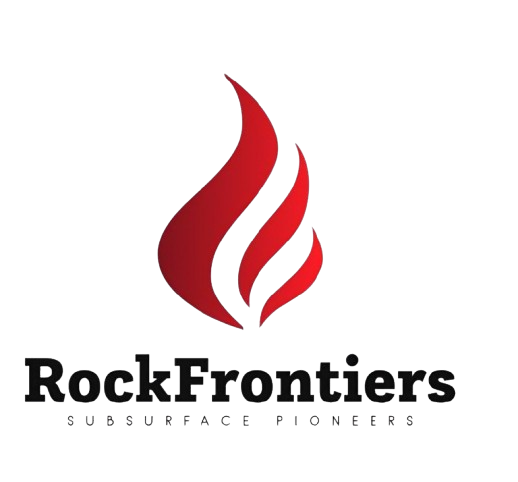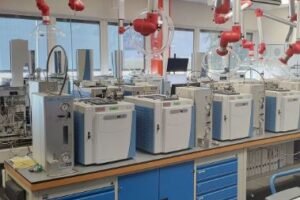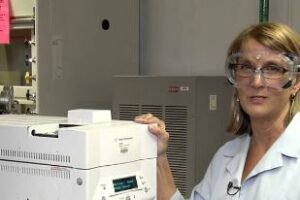Geochemical Techniques for soure rocks evaluation
🎯 Course Description: This course is designed to provide geoscientists, reservoir engineers, and production specialists with practical knowledge of applied geochemistry to solve field development and reservoir management challenges. Participants will learn how to integrate geochemical data (e.g., oil, gas, …
Overview
🎯 Course Description:
This course is designed to provide geoscientists, reservoir engineers, and production specialists with practical knowledge of applied geochemistry to solve field development and reservoir management challenges. Participants will learn how to integrate geochemical data (e.g., oil, gas, and water composition, isotopes, biomarkers) to assess reservoir continuity, compartmentalization, fluid origins, migration pathways, production allocation, and EOR monitoring.
The course emphasizes real-world applications through case studies, hands-on interpretation, and workflow development. It also explores advanced analytical methods and geochemical modeling used to support field development decisions across conventional and unconventional systems.
👥 Who Should Attend:
-
Reservoir Engineers
-
Geoscientists (Geologists & Geochemists)
-
Petroleum Engineers
-
Development Planners
-
Production and Surveillance Engineers
-
Field Development Teams
🧾 Training Format:
-
Duration: 5 Days
-
Delivery: Classroom / Virtual Instructor-Led
-
Approach: Lectures, Case Studies, Group Work, Interpretation Exercises
-
Course Materials: Digital Manual, Reference Charts, Lab Interpretation Templates
🗓️ 5-Day Detailed Agenda with Time Breaks
Day 1: Introduction to Geochemistry in Field Development
| Time | Topic |
|---|---|
| 09:00 – 09:30 | Welcome & Objectives of the Course |
| 09:30 – 10:30 | Role of Geochemistry in Reservoir Management |
| 10:30 – 10:45 | ☕ Coffee Break |
| 10:45 – 12:15 | Basic Petroleum Geochemistry: Origins & Maturity |
| 12:15 – 13:15 | 🍽️ Lunch Break |
| 13:15 – 14:45 | Source Rocks, Kerogen Types & Thermal Evolution |
| 14:45 – 15:00 | ☕ Coffee Break |
| 15:00 – 16:30 | Biomarkers, Isotopes & Geochemical Fingerprinting |
Day 2: Reservoir Connectivity & Fluid Distribution
| Time | Topic |
|---|---|
| 09:00 – 10:30 | Geochemical Techniques for Assessing Reservoir Connectivity |
| 10:30 – 10:45 | ☕ Coffee Break |
| 10:45 – 12:15 | Compartmentalization & Fluid Contacts Using Geochemistry |
| 12:15 – 13:15 | 🍽️ Lunch Break |
| 13:15 – 14:45 | Oil Families & Migration Pathways |
| 14:45 – 15:00 | ☕ Coffee Break |
| 15:00 – 16:30 | Case Study: Differentiating Fluid Compartments in Complex Reservoirs |
Day 3: Production Allocation and Monitoring
| Time | Topic |
|---|---|
| 09:00 – 10:30 | Production Allocation Using Geochemical Tracers |
| 10:30 – 10:45 | ☕ Coffee Break |
| 10:45 – 12:15 | Differentiating Oil & Gas from Multiple Zones |
| 12:15 – 13:15 | 🍽️ Lunch Break |
| 13:15 – 14:45 | Monitoring Commingled Production Over Time |
| 14:45 – 15:00 | ☕ Coffee Break |
| 15:00 – 16:30 | Integrating Fluid Geochemistry with PLT and Logging Data |
Day 4: Geochemical Applications in EOR and Water Management
| Time | Topic |
|---|---|
| 09:00 – 10:30 | Geochemical Surveillance of EOR Projects (Polymer, CO₂, WAG, etc.) |
| 10:30 – 10:45 | ☕ Coffee Break |
| 10:45 – 12:15 | Tracer Applications for Water Flood and Gas Injection Monitoring |
| 12:15 – 13:15 | 🍽️ Lunch Break |
| 13:15 – 14:45 | Identification of Breakthrough Sources (Water, Gas, Crossflow) |
| 14:45 – 15:00 | ☕ Coffee Break |
| 15:00 – 16:30 | Case Study: Monitoring a Miscible Gas Injection Project |
Day 5: Integration, Workflows & Case Studies
| Time | Topic |
|---|---|
| 09:00 – 10:30 | Integrating Geochemistry with Static and Dynamic Models |
| 10:30 – 10:45 | ☕ Coffee Break |
| 10:45 – 12:15 | Geochemical Workflow Development for Field Application |
| 12:15 – 13:15 | 🍽️ Lunch Break |
| 13:15 – 14:45 | Group Exercise: Solving Field Development Problems Using Geochemistry |
| 14:45 – 15:00 | ☕ Coffee Break |
| 15:00 – 16:30 | Summary, Discussion, Feedback & Certificate Distribution |
Target audiences
- Reservoir Engineers, Geologists
You May Like
Gas and oil laboratories in the petroleum industryCopy
Course Description This course provides a comprehensive overview of laboratory practices, techniques, and standards used in the petroleum industry. Participants will understand how laboratory results guide exploration, drilling, production, and refining decisions. The course explores lab procedures for PVT analysis, …
Advanced gas chromatography techniques and troubleshooting
📘 Course Description: This advanced-level course is designed for experienced chromatographers and laboratory professionals who wish to master the latest techniques, applications, and in-depth troubleshooting strategies in Gas Chromatography (GC). The program focuses on method enhancement, selectivity tuning, high-resolution separations, …
🧪 Gas Chromatography Analysis – Principles, Practice & Applications
📘 Course Description: This intensive course provides a comprehensive understanding of Gas Chromatography (GC) and its application in chemical, petrochemical, pharmaceutical, and environmental laboratories. Participants will learn the fundamentals of gas chromatographic theory, the hardware components, detector technologies, sample preparation, …
Gas and oil laboratories in the petroleum industry
Course Description This course provides a comprehensive overview of laboratory practices, techniques, and standards used in the petroleum industry. Participants will understand how laboratory results guide exploration, drilling, production, and refining decisions. The course explores lab procedures for PVT analysis, …
Advanced Specialist Petroleum GeoMechanics
📘 Course Description: This elite-level course is tailored for petroleum geomechanics specialists and senior subsurface professionals engaged in complex field development projects. It provides a deep technical dive into stress modeling, anisotropic rock behavior, coupled geomechanical-reservoir simulation, fault/fracture mechanics, and …





